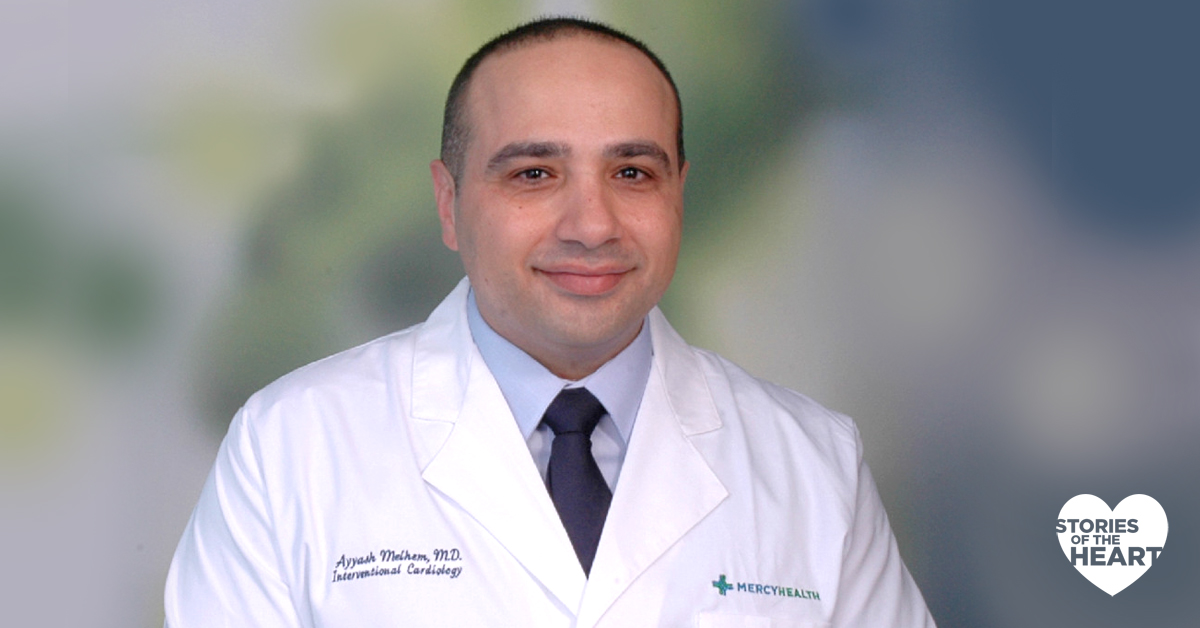Good heart health starts early, but it’s never too late to prevent heart disease
Many people have some cardiovascular risk – either from a family history, advancing age or lifestyle choices. And heart disease is the leading cause of death in the United States. That’s why heart health is something we should keep top of mind every day – from our food choices to our activity levels and sleep.
Understanding your inherited risks and making smart lifestyle choices can impact the length and quality of your life. Wassim Eid, DO, interventional cardiologist with Mercy Health Physicians, addresses your common questions on how to improve your heart health.
When do I need to talk to my doctor about my heart health?
Our childhood habits often follow us throughout life. If we sat in front of the computer eating snacks instead of playing outside, we may continue that pattern as adults. A poor diet, sedentary lifestyle and genetic risk factors can have a huge impact on our heart health. That’s why it’s important to find a primary care doctor, talk to them about your risk factors and have regular wellness exams.
What tests or screenings do I need to have?
Important screening tests start at age 20 with a yearly blood pressure check and weight/BMI calculation, as well as a fasting lipoprotein profile for cholesterol and triglycerides every four to six years.
After age 45, have your blood glucose levels tested every three years. If you have family risk factors or high test results, your doctor may recommend testing more often.
What can I do if my test results put me at higher risk for heart disease?
While you can’t change your family history, age or race, you can control other factors that can keep your heart as healthy as possible. The American Heart Association and American College of Cardiology recommend lifestyle management guidelines that include:
- Exercise vigorously for at least 40 minutes three to four times a week
- Eat a diet of fresh fruits, vegetables, whole grains, low-fat dairy, poultry, fish and nuts
- Eliminate or limit red meat and processed sugars
- Reduce salt intake to less than 2,400 mg each day
Of course, the basics of healthy living still apply:
- Stop smoking
- Drink alcohol only in moderation
- Reduce stress
- Keep weight, blood pressure and blood sugar on target
- Get enough sleep
When do I need to see a cardiologist?
Your primary care doctor can help you manage elevated cholesterol and high blood pressure through medications and advice on dietary changes. However, if you experience chest pain that feels like indigestion or heaviness in your chest, you may need an evaluation by a cardiologist.
Additionally, men over age 45 and post-menopausal women with a family history of heart disease benefit from a cardiology consultation. Often, it is something as simple as a stress test, EKG or additional blood work that can uncover a problem in its early stages. Adults with diabetes, kidney disease or who are obese often have more cardiovascular conditions.
While many of us may be at predisposed to heart disease, you can reduce your chances of developing it by knowing your risk factors, living a healthy lifestyle and having regular checkups.






